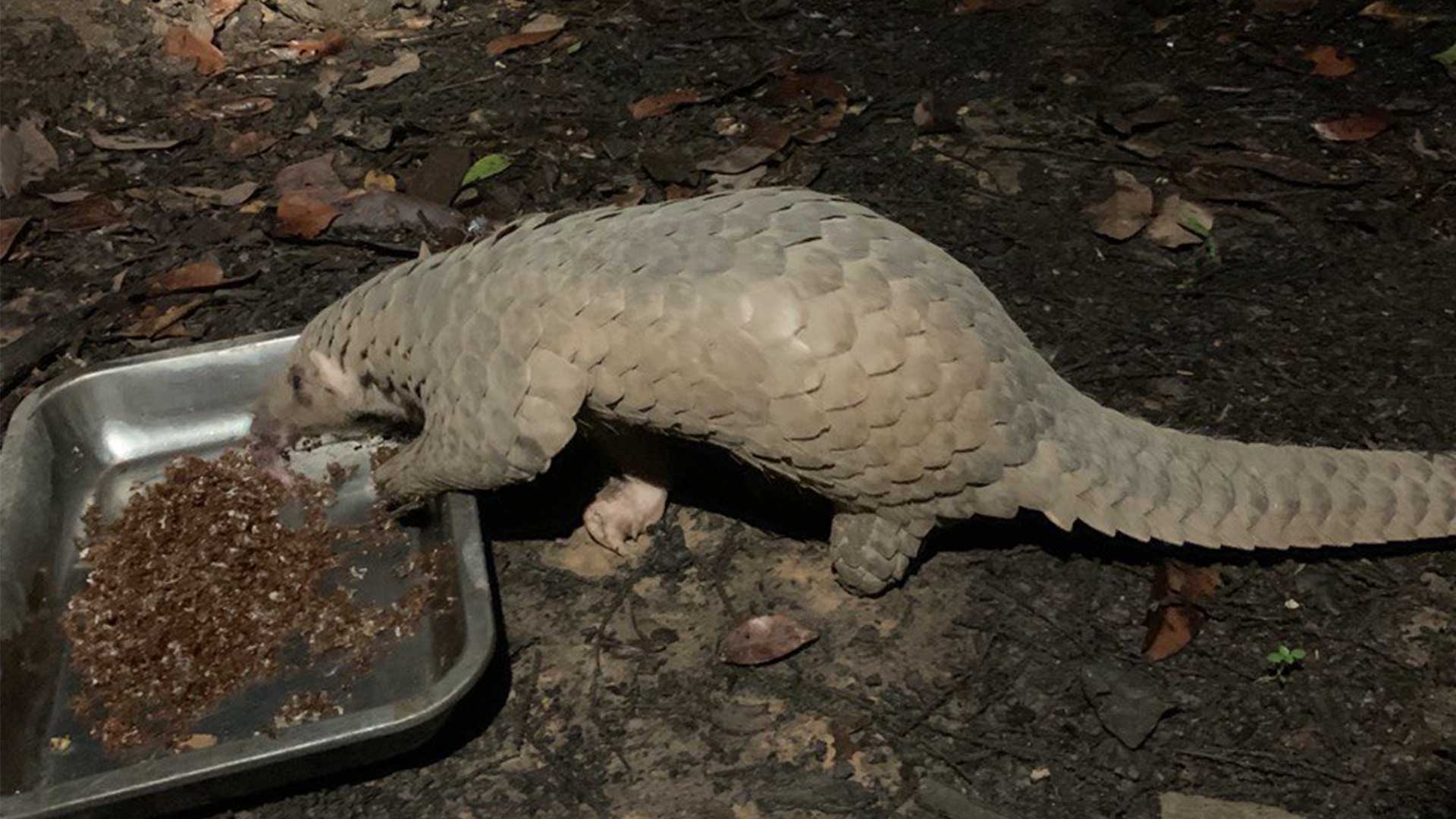The Sunda pangolin is a scaly mammal that eats ants, lives in dense forest, and rolls into a tiny ball when scared. Sadly, the pangolin is the most trafficked animal in the world. Hunted for their meat and scales, pangolins are being eaten to extinction. In the past decade, an estimated 1 million pangolins have been trafficked.
The Sunda pangolin is a scaly mammal that eats ants, lives in dense forest, and rolls into a tiny ball when scared. Sadly, the pangolin is the most trafficked animal in the world. Hunted for their meat and scales, pangolins are being eaten to extinction. In the past decade, an estimated 1 million pangolins have been trafficked.

Meet Chanti
Chanti, which is the Khmer name for a cashew nut that she looks like when she is curled up asleep, was rescued in May of 2022. She was found by a family wandering the streets of Phnom Penh with a severed back left leg who contacted our Wildlife Rapid Rescue Team to donate her. The wound was almost completely healed when she was rescued, only requiring some regular cleaning to allow it to finish healing. She was initially transported to Phnom Tamao and then shortly after to our Wildlife Release Station, where she has settled in well.

Meet Chanti
Chanti, which is the Khmer name for a cashew nut that she looks like when she is curled up asleep, was rescued in May of 2022. She was found by a family wandering the streets of Phnom Penh with a severed back left leg who contacted our Wildlife Rapid Rescue Team to donate her.
Every sponsorship will receive an online printable packet.
This e-packet saves us money on printing and postage so everya dollar you donate goes directly to the animals.
*If you’d like to put the sponsorship in another person’s name, please put their details in the “Additional comments” section below.
